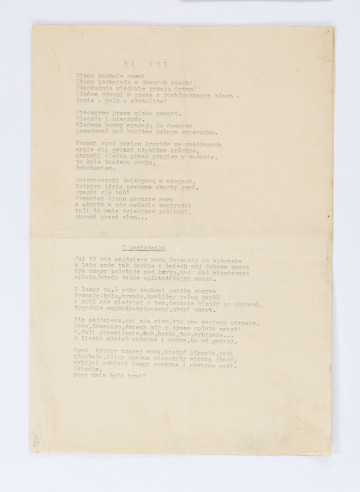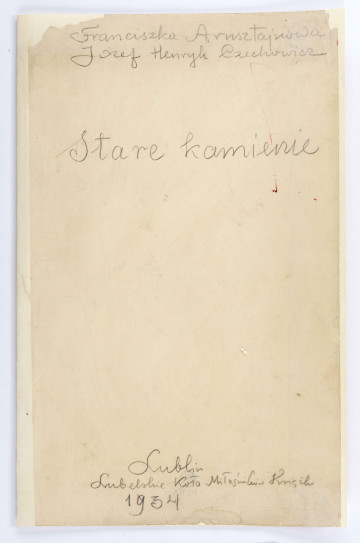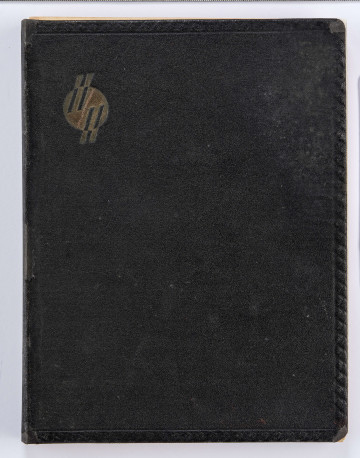
In the village; From a diary; Through the Eastern Borderlands; April of those without a care
1930 — 1939
National Museum in Lublin
Part of the collection: Memorabilia related to Józef Czechowicz
"About a mile from charming Puławy, on the extreme slopes of the Lublin Upland, among gently rolling, not very fertile fields, lies the village of Młynki" - the words beginning the text by Józef Czechowicz Młynkowskie przyśpiewania [Młynki chants] somewhat resemble the beginning of a fairy tale. They transport us to the very centre of the Puławy region, where the poet's mother, Małgorzata née Sułka, came from. The talented son immortalised her figure in his poems; in them she is always a happy, saving haven, gwiazda czarów [a star of magic]. She passed on the love of folk culture to Czechowicz. As Tadeusz Kłak wrote: "What the old nannies were for the still mostly crestfallen Romantic poets, for the author nothing more, mother became - a treasury and embodiment of the old tradition, the old order".
Until the end of her life, Małgorzata Czechowicz remained in close contact with her family living in Młynki. The poet also often went to his mother's home village, where he collected and recorded folk songs, later printing them in various Lublin magazines. Moreover, he published two sketches (Młynkowskie przyśpiewania [Młynki chants], Dawne pieśni młynkowskie [Młynki’s old songs]), in which he included information on the history and language of the village of Młynki, researched the names of its inhabitants, and described the customs determined by the rhythm of the four seasons of the year and the holidays associated with it: "unheard-of weddings, colourful, drunken and generous weddings, [...] carnivals with a bear, a gypsy and "kusocorze", wielganocne śmigusy, maiki and sobótkowa noc with a note about Jan Zielony, with a note about Krakowianka, who did not want to marry the king".
The Młynki’s folk songs became an inspiration for the poet to create his own work U moji matusi [At my Mum’s] based on their example. The author included the following information under its text: "dialect of the village of Młynki near Puławy, year 1930". In this poem, written consistently in dialect, saturated with folk vocabulary, Czechowicz uses numerous stylisation devices, which indicate that we are dealing with a processed text, subjected to artistic treatment. In a letter to J. N. Kłosowski, Czechowicz writes: "I am sending [...] a 'folk' poem of my own making and almost phonetically transcribed. Perhaps you will give it for publication as it is, with a small commentary on dialect poetry in Italy, France and Poland". The piece was published in 1931 in "Wieś Krasnystawska" (no. 2/3).
Author / creator
Dimensions
cały obiekt: height: 17,8 cm, width: 22,2 cm
Object type
typescript
Technique
typescript
Material
paper
Creation time / dating
Creation / finding place
Owner
The National Museum in Lublin
Identification number
Location / status

1930 — 1939
National Museum in Lublin

1934
National Museum in Lublin

1936 — 1938
National Museum in Lublin
DISCOVER this TOPIC
Museum of King Jan III's Palace at Wilanów
DISCOVER this PATH
Educational path